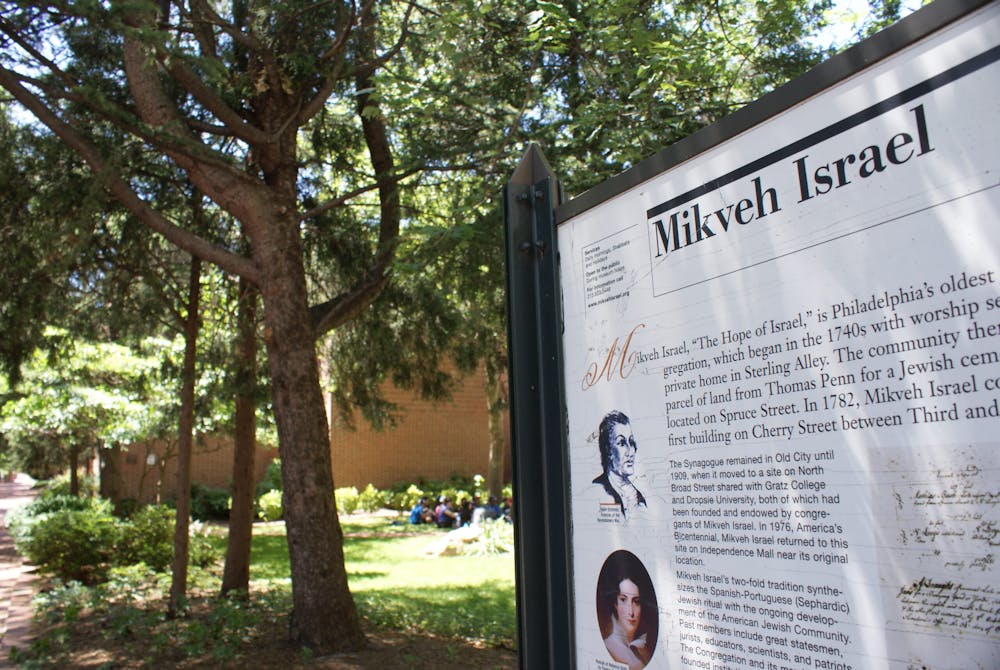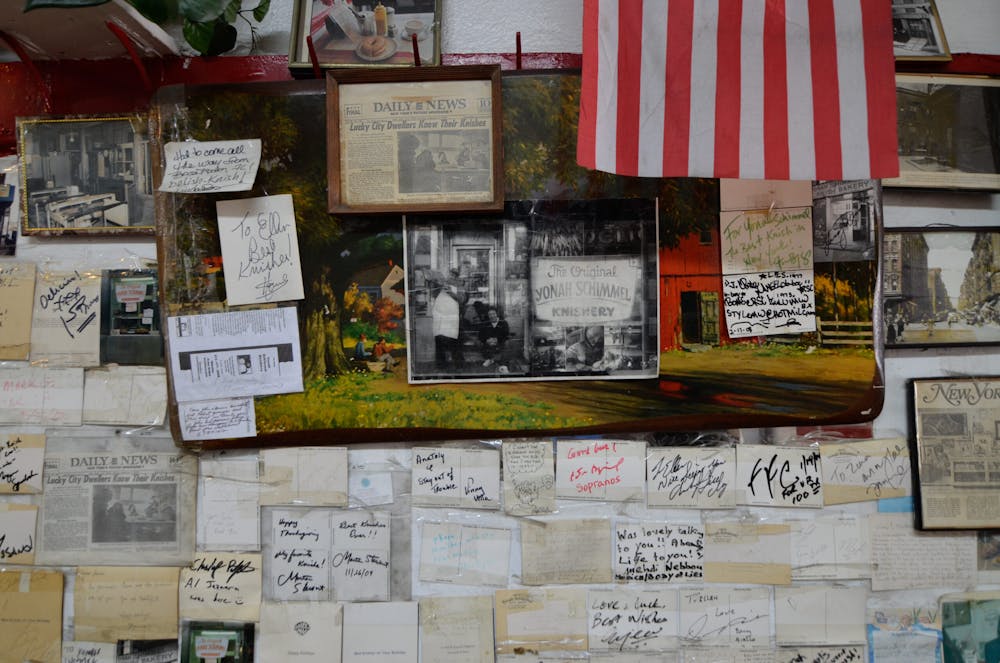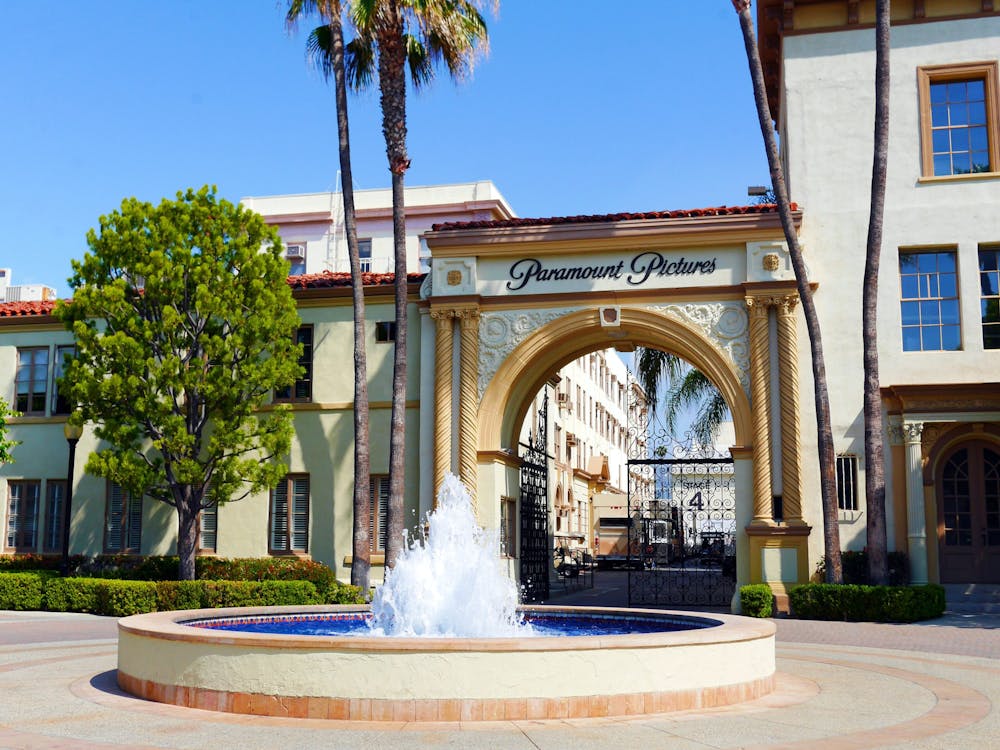Travel Perspective: The Jewish Experience
This month, we’re highlighting the landmarks and attractions that speak to the Jewish experience in three cities in our WeVenture network. From the Hudson River to the Hollywood Hills, you might be surprised by the deep history and cultural significance the Jewish people have contributed throughout the development of the nation.

SONY DSC
Philadelphia
Jews have a prominent role in the history of our nation, and nowhere is this more pronounced than the birthplace of American Independence, Philadelphia, Pennsylvania. While some of it is hidden in history books, you can still find it in the names inscribed on buildings and gravestones and in museums preserving the memories and artifacts from colonial to modern times:
Congregation Mikveh Israel & Cemetery
Leading up to the American Revolution, there were several notable names who today we can honor for their part in helping to not only finance the war (not to mention never being repaid) but aiding in repairing the fledgling nation’s economy and offering services for those in need following the revolution.
Today, you can pay your respects to one of our most beloved activists, educators, and philanthropists of Philadelphia, Rebecca Gratz, buried at Mikveh Israel Cemetery in Washington Square West neighborhood, minutes away from Independence Hall. This National Historical Park is not only the final resting place of Gratz – who dedicated her years to helping widows and orphans of the war – but other notable Jews who risked everything to support the American cause during the most uncertain period leading up to and following American independence.
And be sure to pass by Congregation Mikveh Israel, just across the way from Independence Visitor Center. This synagogue has served a valuable role in Philadelphia’s history, with roots dating back to 1740!
Weitzman National Museum of American Jewish History
Originally founded by the members of Congregation Mikveh Israel, the Weitzman National Museum of American Jewish History a block away deserves a visit for anyone seeking to understand the history and contributions of Jewish Americans not just in Philadelphia but the country over. Spot Irving Berlin’s piano on the first floor, follow the Jewish immigrant experience to America, and hear and read perspectives on current issues and even add your own.

New York
Outside of Israel, New York has the largest Jewish community in the world. The history of New York’s Jewish population is written on its tenement halls and preserved in its religious and educational institutes. Here are just a few to include in your next visit to the city:
Museum of Jewish Heritage
What was life like for Jews living through the world wars? What was life like in the aftermath of the Holocaust for survivors and their families? How do we reflect on and process the atrocities of the Holocaust? The Museum of Jewish Heritage sets out to not only give voice to Holocaust survivors to speak through recorded testimony but also promotes an understanding of Jewish heritage that is needed more than ever today.
Museum at Eldridge Street
Located in Chinatown in lower Manhattan, the historic synagogue housing The Museum at Eldridge Street has been a neighborhood fixture since 1887. And since then, it has served as a safe house of worship and a welcoming community for newly arrived Jewish immigrants. Book a tour to marvel at the gorgeous interior and be taken through American Jewish history and Jewish immigrant life in New York’s Lower East Side, and be sure to check their website’s calendar for special pop-up events happening year round.
Katz’s Delicatessen
But museums aside, to really immerse oneself in any culture, one must try the traditional cuisine. A Manhattan institution dating back to 1888, Katz’s Delicatessen is one of top delis where you can indulge in its famed pastrami and corned beef sandwich. If you’re not up for the crowds and the wait, our guides recommend Barney Greengrass, an Upper West Side institution that’s been around since 1908. After a visit to the Lower East Side Tenement Museum, head to Yonah Schimmel’s for some delicious sweet and savory knishes.

Los Angeles
Los Angeles may not be an obvious destination to seek out Jewish history and culture, behind New York City and Philly. Explore these landmarks to trace western immigration and early Jewish roots in vaudeville in L.A.:
Paramount Studios
So much of what we see on screen these days is thanks in part to the brilliant visions of Jewish filmmakers and producers. The roar behind Leo the Line was brought to us by Samuel Goldwyn, while Carl Laemmle’s Universal Studios has brought us memorable flicks such as Bela Lugosi’s iconic Dracula, Jaws, and the Jurassic Park franchise.
While you’re touring around LA, you can book a tour of Paramount Studios, founded by the entrepreneurial Adolph Zukor, who from humble Hungarian roots became one of the most notable film producers of his time. As you marvel at the behind-the-scenes sets and sound stages, marvel at the legacy of Zukor, who started out selling furs before helping to build Hollywood as we know it today!
The Skirball Cultural Center
To learn more about the achievements of the Jewish people here and all around the globe, head over to The Skirball Cultural Center. The museum contains the stories, struggles, and significant contributions made by Jewish people dating back 4,000 years, with the aim of educating and inspiring the public.
The Los Angeles Museum of the Holocaust
The Los Angeles Museum of the Holocaust is the first survivor-founded and oldest Holocaust museum in the United States. Exhibits have included interactive projects featuring personal testimonies of Holocaust survivors as well as powerful artworks exploring loss and grief by sculptor A. Thomas Schomberg – you may recognize one of his works outside the Philadelphia Museum of Art, the iconic Rocky Balboa statue. The museum, free for students and ages 17 and under, encourages visitors to “think critically about the lessons of the Holocaust and its social relevance today.”
